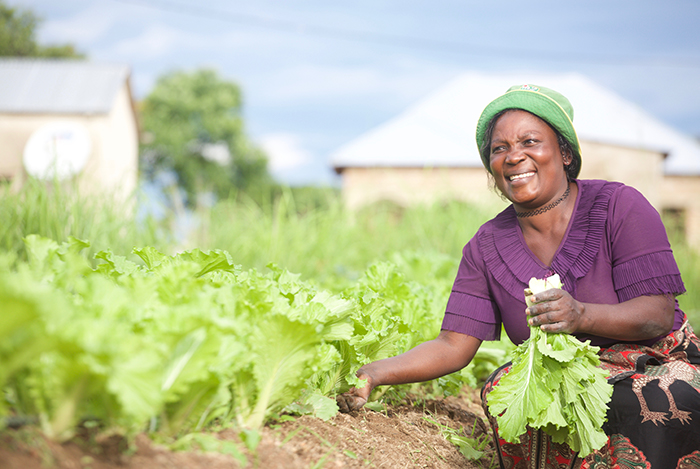
WHY: Most of the 12 million people clustered around the poverty line in Tanzania live in rural areas and depend on agriculture for their livelihood. The sector employs 76.5% of the population yet produces only 27.6% of GDP. This makes farmers an average of 8.5 times less productive than people outside agriculture. The absolute number of farmers in Tanzania is growing and is likely to remain high for decades; hence GDP per farmer must be improved to eradicate poverty. NCA Tanzania has worked for years with the saving and loan groups called Inter-religious (IR) VICOBA44, where women, men and youth are supported to establish micro- and small enterprises, many of which are related to agriculture. Since 2007 approximately 100,000 women, men and youth have been mobilised through 4,000 IR VICOBA groups and over USD 21 million has been saved; and often invested in small businesses for improved livelihoods. A major challenge is how these enterprises, that have limited growth and low profit, can be transformed into a more prosperous network of faster growing business enterprises that can create more productive jobs.

WHAT: NCA Tanzania started the “Veggie” pilot to increase rights-holders’ income. Through one of NCA’s other Economic Empowerment pilots in Tanzania; the Small Holder Empowerment (SHE) project, experience showed that farmers did not invest the USD 75 needed to participate in the project. NCA learned that affordability is key to scalability and this was taken into account when designing the “Veggie” pilot in 2016. Farmers were able to invest in a simple irrigation system, which gives a high return in only 45 to 90 days, for only USD 12. NCA has acted as a wholesale agent, as it had the financial capacity to buy irrigation systems in large quantities, at a cheaper price than the farmers would access individually. This equipment was not available in most villages and where it was it was more expensive. NCA’s partner addressed this by selling irrigations systems, fertilisers and seeds in target villages. Although the farmers could use seeds from any source, NCA made quality seeds available at a price around cost. The plan is to establish a national IR VICOBA Association (NIRVA) where rights-holders coordinate such demands from their fellow small-scale entrepreneurs who can buy in big quanta at an affordable price. Until such a structure is in place, NCA has taken on such a role to test, learn and prepare for the establishment of the NIRVA.
The pilot also included testing of digital performance monitoring tools, which proved to be efficient when managing a dispersed field corps. GPS based surveys, including pictures, flowed almost daily from field corps using cell phones to collect and update data on all aspects of the pilot, such as number of veggie beds installed per region (e.g. per week or month), what was planted, status for veggie beds and further plans. This information was accessible immediately, and allowed management to monitor performance closely and to take timely decisions, such as where to deploy resources, and which resources to discontinue.
RESULTS: About 101 families in 80 villages have been able to invest in affordable irrigation systems and develop 400 vegetable beds. Their families experienced increased nutrition as well as an increased cash income. They also experienced being a part of a scalable micro investment that they could continue to invest in at their own speed. Since the USD 12 investment has proved to be affordable for small-scale farmers, and investment is returned within 45 to 90 days, it is expected that this micro-investment in vegetables will not only improve food security, but can provide sufficient cash-flow to make more capital available for bigger investments and increase the farmers’ income. In 2017 more Economic Empowerment programme countries will use learning from the Veggie pilot in similar projects.